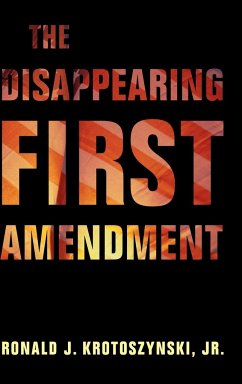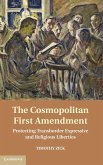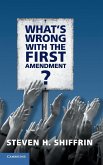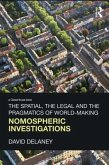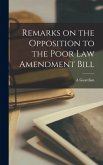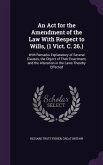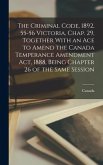Jr. Ronald J. Krotoszynski
The Disappearing First Amendment
Jr. Ronald J. Krotoszynski
The Disappearing First Amendment
- Gebundenes Buch
- Merkliste
- Auf die Merkliste
- Bewerten Bewerten
- Teilen
- Produkt teilen
- Produkterinnerung
- Produkterinnerung
Demonstrates how the Supreme Court enforces rules against content and viewpoint discrimination, but has been less reliable in safeguarding First Amendment rights when ordinary citizens need the government's assistance to speak. This book should be read by anyone concerned with free speech and its place in democratic self-government.
Andere Kunden interessierten sich auch für
![The Cosmopolitan First Amendment The Cosmopolitan First Amendment]() Timothy ZickThe Cosmopolitan First Amendment137,99 €
Timothy ZickThe Cosmopolitan First Amendment137,99 €![What's Wrong with the First Amendment What's Wrong with the First Amendment]() Steven H. ShiffrinWhat's Wrong with the First Amendment114,99 €
Steven H. ShiffrinWhat's Wrong with the First Amendment114,99 €![The Spatial, the Legal and the Pragmatics of World-Making The Spatial, the Legal and the Pragmatics of World-Making]() David DelaneyThe Spatial, the Legal and the Pragmatics of World-Making180,99 €
David DelaneyThe Spatial, the Legal and the Pragmatics of World-Making180,99 €![Remarks on the Opposition to the Poor Law Amendment Bill Remarks on the Opposition to the Poor Law Amendment Bill]() A. GuardianRemarks on the Opposition to the Poor Law Amendment Bill28,99 €
A. GuardianRemarks on the Opposition to the Poor Law Amendment Bill28,99 €![An Act for the Amendment of the Law With Respect to Wills, (1 Vict. C. 26.): With Remarks Explanatory of Several Clauses, the Object of Their Enactmen An Act for the Amendment of the Law With Respect to Wills, (1 Vict. C. 26.): With Remarks Explanatory of Several Clauses, the Object of Their Enactmen]() Richard Trott FisherAn Act for the Amendment of the Law With Respect to Wills, (1 Vict. C. 26.): With Remarks Explanatory of Several Clauses, the Object of Their Enactmen28,99 €
Richard Trott FisherAn Act for the Amendment of the Law With Respect to Wills, (1 Vict. C. 26.): With Remarks Explanatory of Several Clauses, the Object of Their Enactmen28,99 €![The Criminal Code, 1892, 55-56 Victoria, Chap. 29, Together With an Ace to Amend the Canada Temperance Amendment Act, 1888, Being Chapter 26 of the Sa The Criminal Code, 1892, 55-56 Victoria, Chap. 29, Together With an Ace to Amend the Canada Temperance Amendment Act, 1888, Being Chapter 26 of the Sa]() The Criminal Code, 1892, 55-56 Victoria, Chap. 29, Together With an Ace to Amend the Canada Temperance Amendment Act, 1888, Being Chapter 26 of the Sa36,99 €
The Criminal Code, 1892, 55-56 Victoria, Chap. 29, Together With an Ace to Amend the Canada Temperance Amendment Act, 1888, Being Chapter 26 of the Sa36,99 €![Consolidated Abstracts of the Highway Acts, 1862, 1864; the Locomotive Acts, 1861, 1865, and the Highways and Locomotives (Amendment) Act, 1878, With the Acts in Extenso, Notes and Copious Index Consolidated Abstracts of the Highway Acts, 1862, 1864; the Locomotive Acts, 1861, 1865, and the Highways and Locomotives (Amendment) Act, 1878, With the Acts in Extenso, Notes and Copious Index]() James A FootConsolidated Abstracts of the Highway Acts, 1862, 1864; the Locomotive Acts, 1861, 1865, and the Highways and Locomotives (Amendment) Act, 1878, With the Acts in Extenso, Notes and Copious Index32,99 €
James A FootConsolidated Abstracts of the Highway Acts, 1862, 1864; the Locomotive Acts, 1861, 1865, and the Highways and Locomotives (Amendment) Act, 1878, With the Acts in Extenso, Notes and Copious Index32,99 €-
-
-
Demonstrates how the Supreme Court enforces rules against content and viewpoint discrimination, but has been less reliable in safeguarding First Amendment rights when ordinary citizens need the government's assistance to speak. This book should be read by anyone concerned with free speech and its place in democratic self-government.
Produktdetails
- Produktdetails
- Verlag: Cambridge University Press
- Seitenzahl: 410
- Erscheinungstermin: 3. Oktober 2019
- Englisch
- Abmessung: 235mm x 157mm x 27mm
- Gewicht: 742g
- ISBN-13: 9781108481540
- ISBN-10: 110848154X
- Artikelnr.: 56711739
- Herstellerkennzeichnung
- Libri GmbH
- Europaallee 1
- 36244 Bad Hersfeld
- gpsr@libri.de
- Verlag: Cambridge University Press
- Seitenzahl: 410
- Erscheinungstermin: 3. Oktober 2019
- Englisch
- Abmessung: 235mm x 157mm x 27mm
- Gewicht: 742g
- ISBN-13: 9781108481540
- ISBN-10: 110848154X
- Artikelnr.: 56711739
- Herstellerkennzeichnung
- Libri GmbH
- Europaallee 1
- 36244 Bad Hersfeld
- gpsr@libri.de
Ronald J. Krotoszynski, Jr teaches and writes about constitutional law, administrative law, First Amendment, and comparative constitutional law, with a particular focus on the First Amendment and freedom of expression. He is the author of three books, including Privacy Revisited (2016), Reclaiming the Petition Clause (2012), and The First Amendment in Cross-Cultural Perspective (2006). He has published works in leading law reviews and is the co-author of two casebooks, First Amendment: Cases and Theory (3rd edition, 2017) and Administrative Law (4th edition, 2017).
1. Two steps forward, one step back: on the decline of expressive freedoms
under the Roberts and Rehnquist Courts; 2. The public forum doctrine and
reduced access to government property for speech activity; 3. The First
Amendment as a source of positive rights: the Warren Court and First
Amendment easements to private property; 4. Whistleblowing speech and
democratic accountability: the growing problem of reduced First Amendment
protection for government employee speech; 5. Shedding their constitutional
rights at the schoolhouse gate: the decline of freedom of speech for
students and teachers in the nation's public schools, colleges, and
universities; 6. Transborder speech: using the accident of geography as a
makeweight justification for suppressing expressive freedoms; 7. Systemic
failures to protect newsgathering activities by professional journalists
and amateur citizen-journalists alike; 8. The citizen as government
sock-puppet and the state masquerading as a citizen: the problem of coerced
and mis-attributed speech; 9. Using constitutionally permissible statutes
to impede first amendment activity: the Supreme Court's failure to address
the abuse of discretionary authority by police, prosecutors, and other
non-judicial actors; 10. Conclusion enhancing speech and promoting
democracy: the necessary role of the state in promoting democratic
deliberation among citizen-speakers; Index.
under the Roberts and Rehnquist Courts; 2. The public forum doctrine and
reduced access to government property for speech activity; 3. The First
Amendment as a source of positive rights: the Warren Court and First
Amendment easements to private property; 4. Whistleblowing speech and
democratic accountability: the growing problem of reduced First Amendment
protection for government employee speech; 5. Shedding their constitutional
rights at the schoolhouse gate: the decline of freedom of speech for
students and teachers in the nation's public schools, colleges, and
universities; 6. Transborder speech: using the accident of geography as a
makeweight justification for suppressing expressive freedoms; 7. Systemic
failures to protect newsgathering activities by professional journalists
and amateur citizen-journalists alike; 8. The citizen as government
sock-puppet and the state masquerading as a citizen: the problem of coerced
and mis-attributed speech; 9. Using constitutionally permissible statutes
to impede first amendment activity: the Supreme Court's failure to address
the abuse of discretionary authority by police, prosecutors, and other
non-judicial actors; 10. Conclusion enhancing speech and promoting
democracy: the necessary role of the state in promoting democratic
deliberation among citizen-speakers; Index.
1. Two steps forward, one step back: on the decline of expressive freedoms
under the Roberts and Rehnquist Courts; 2. The public forum doctrine and
reduced access to government property for speech activity; 3. The First
Amendment as a source of positive rights: the Warren Court and First
Amendment easements to private property; 4. Whistleblowing speech and
democratic accountability: the growing problem of reduced First Amendment
protection for government employee speech; 5. Shedding their constitutional
rights at the schoolhouse gate: the decline of freedom of speech for
students and teachers in the nation's public schools, colleges, and
universities; 6. Transborder speech: using the accident of geography as a
makeweight justification for suppressing expressive freedoms; 7. Systemic
failures to protect newsgathering activities by professional journalists
and amateur citizen-journalists alike; 8. The citizen as government
sock-puppet and the state masquerading as a citizen: the problem of coerced
and mis-attributed speech; 9. Using constitutionally permissible statutes
to impede first amendment activity: the Supreme Court's failure to address
the abuse of discretionary authority by police, prosecutors, and other
non-judicial actors; 10. Conclusion enhancing speech and promoting
democracy: the necessary role of the state in promoting democratic
deliberation among citizen-speakers; Index.
under the Roberts and Rehnquist Courts; 2. The public forum doctrine and
reduced access to government property for speech activity; 3. The First
Amendment as a source of positive rights: the Warren Court and First
Amendment easements to private property; 4. Whistleblowing speech and
democratic accountability: the growing problem of reduced First Amendment
protection for government employee speech; 5. Shedding their constitutional
rights at the schoolhouse gate: the decline of freedom of speech for
students and teachers in the nation's public schools, colleges, and
universities; 6. Transborder speech: using the accident of geography as a
makeweight justification for suppressing expressive freedoms; 7. Systemic
failures to protect newsgathering activities by professional journalists
and amateur citizen-journalists alike; 8. The citizen as government
sock-puppet and the state masquerading as a citizen: the problem of coerced
and mis-attributed speech; 9. Using constitutionally permissible statutes
to impede first amendment activity: the Supreme Court's failure to address
the abuse of discretionary authority by police, prosecutors, and other
non-judicial actors; 10. Conclusion enhancing speech and promoting
democracy: the necessary role of the state in promoting democratic
deliberation among citizen-speakers; Index.

